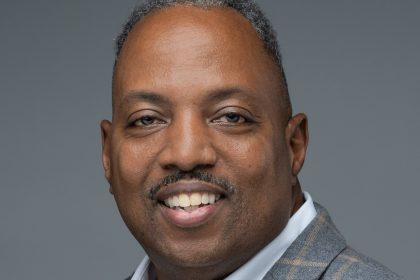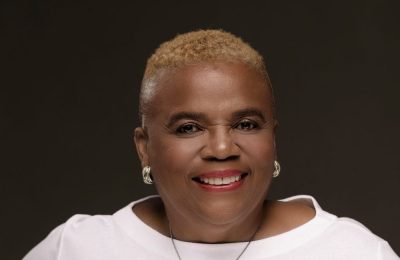Anthony E. Simpkins is president and CEO of Neighborhood Housing Services of Chicago. Simpkins, a distinguished leader in Chicago’s affordable housing sector, brings a wealth of experience to the table. With a background that includes roles such as managing deputy commissioner of the Department of Housing and service as a judge of the Circuit Court of Cook County, his insights into housing and community development policies are invaluable. Tune in as Simpkins joins Munson Steed, the CEO of rolling out, for our CEO to CEO show.
Why have you decided to take this opportunity to continue to serve?
My career really has been a career service. I wanted to stay focused on that. When the opportunity came to head this organization — which is focused on homeownership as a vehicle for economic empowerment — I really jumped at the chance because it’s really at the heart of what I think is important and needed for our people.
If you were getting ready to talk to a young person who was preparing to buy a home, what are the first things that you would share with them before they sign that dotted line for the mortgage?
We have been having those conversations with younger people every day. We do real estate development; we do lending; we do home buyer education and financial counseling to get people ready to be owners. We help people along the whole homeownership journey.
As I talk to young people, one of the things that’s interesting to me is this concept of the American Dream. Homeownership is the American dream. That really doesn’t move our younger people. When I got here, our average borrower was about 41 years old. I knew that people were starting this homeownership and wealth-building journey too late. We wanted to have that conversation with young people.
We talk with people not just about being a homeowner, but buying a two-flat or three-flat. Not only do you have a home, but now you have an investment that is creating residual income. You are now an investor in your community. This really resonates with them because our younger people are entrepreneurs and creatives. They understand that homeownership is not just a place for your family, but it is also an investment for the future of your family as well.
Why is 41 late when it comes to participating in buying and investing and making a home an investment tool?
The secret of homeownership is that it’s the equity appreciation in the home. You buy a home, that home appreciates. As you pay your mortgage, you’re paying down the debt, so you owe less — and you own more. It was not a mistake that, beginning in the 1930s, the federal government began to create policies that dramatically expanded homeownership because they knew that was the central pathway to the middle class, It’s, in a certain way, it’s a form of wealth transfer. You have been transferring [generational] wealth through your home.
The data tells us that for most families who own homes, their equity in the home represents 60 to 70 percent of all the wealth they own. So if you’re not on this pathway, you’re missing out on the vehicle that is producing wealth in America. What the data shows is that if you start on that journey when you’re in your 20s or early 30s, you have multiple iterations of that journey. By the time you get to your 40s, you’re seeing real wealth. By the time you get into your 40s and you want to send a kid to college, you can do it. By the time you get to your 40s and you need to take care of a parent, you can do it. You have choices in your career. If you don’t start on this journey in your 20s, however, what happens is you don’t have the ability to leverage that wealth to invest in yourself and invest in your future.
How can people learn more about what you’re doing? Where can they find you?
We’re all over the web. We’re on social media. You can go to our website, nhschicago.org, and you can find out about all the services that we have available. If you’re in Chicago, we can help you buy your first home, but we’ve also worked with a lot of other organizations around the country and can connect you to services around the country as well.

















